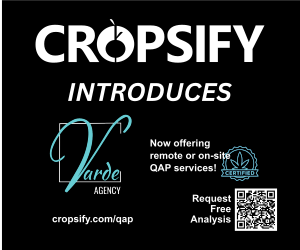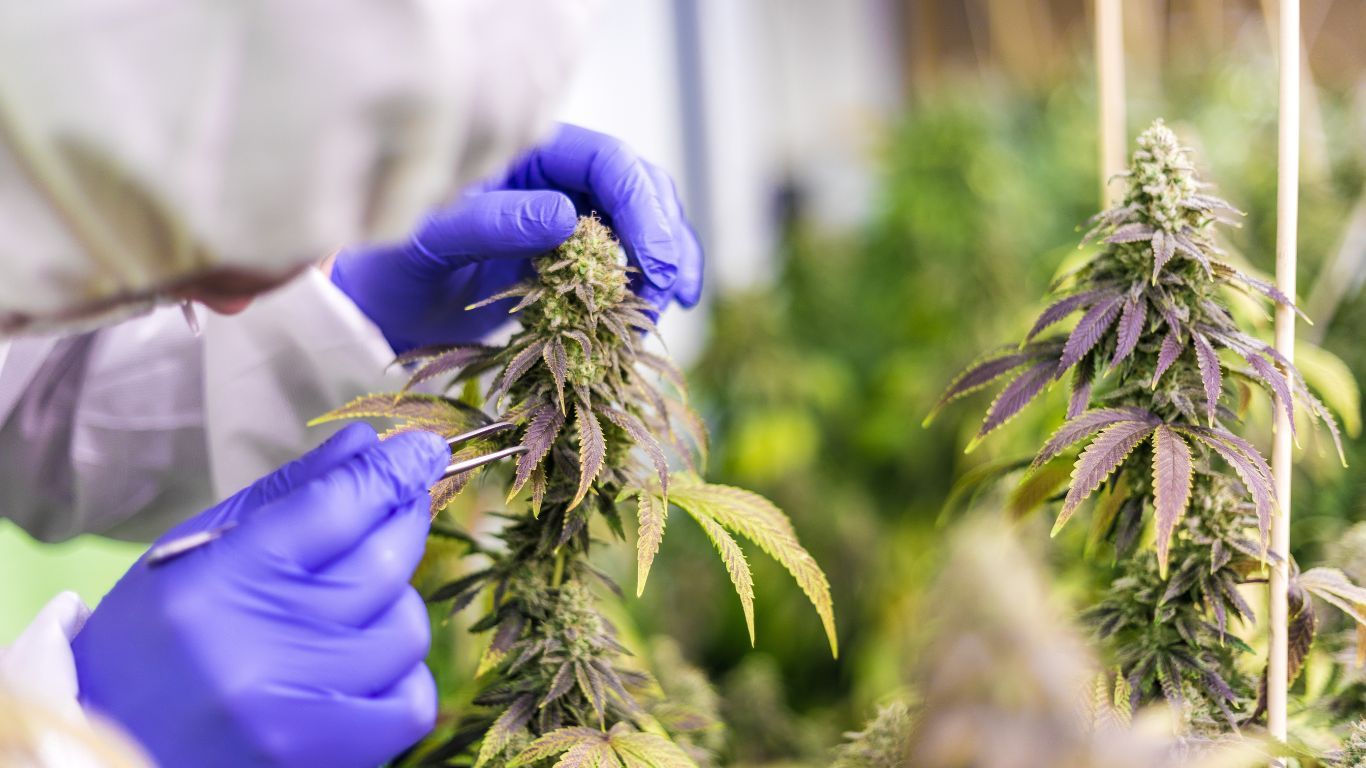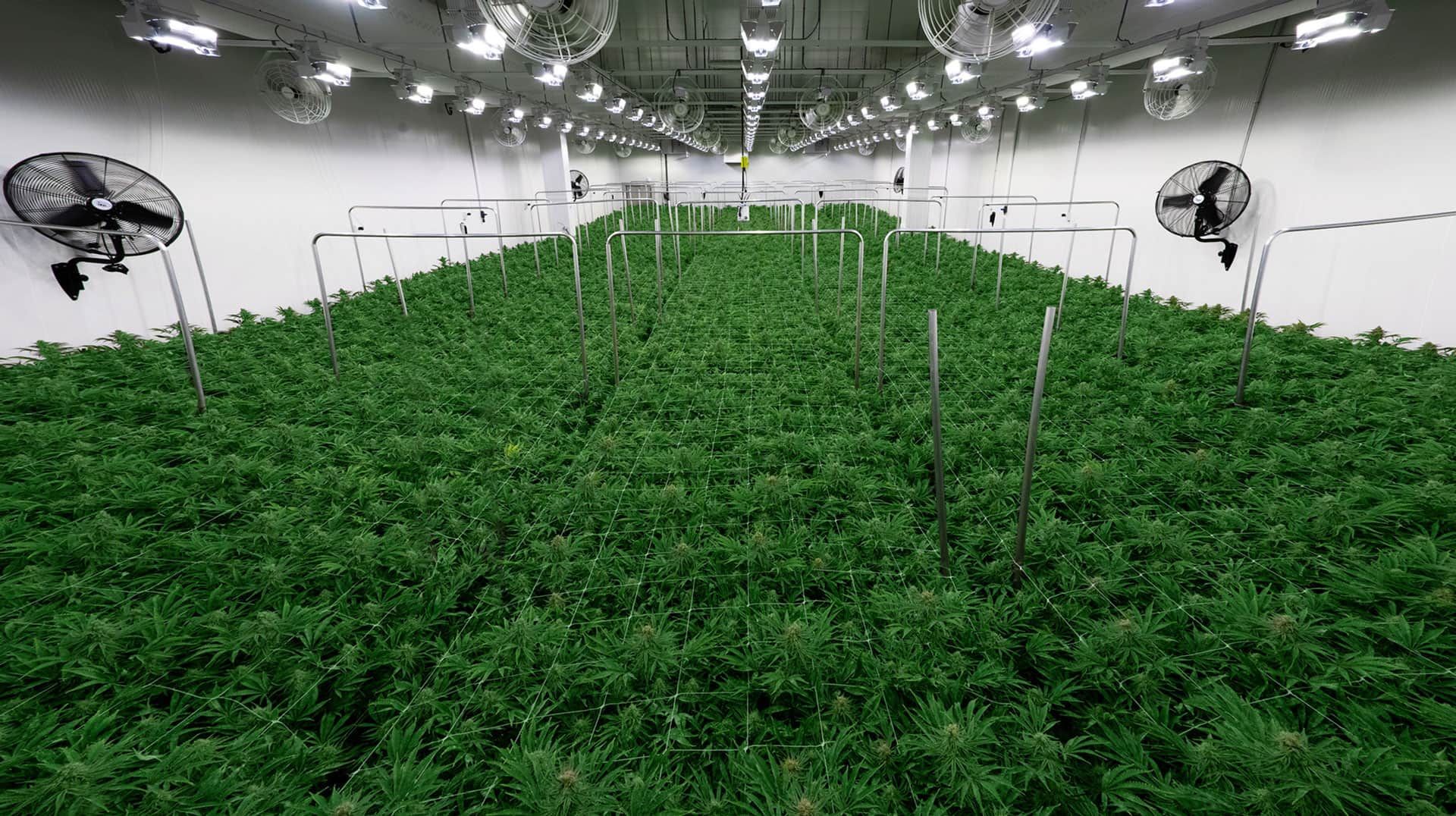
Things haven’t been this good in the illicit cannabis industry in British Columbia in many years, say several industry insiders who feel the province could do more to help the legal industry compete.
Factors such as increased wholesale prices on the black market, a low level of enforcement, and too many challenges for legal players from all levels of government are helping to encourage people to not transition into the legal market, although some do see opportunities on the horizon.
As British Columbia works to create a thriving legal cannabis industry alongside what is arguably one of the most robust illicit cannabis industries on the planet, the appeal of staying in the black market is strong. Even as many former black market growers and retailers do successfully make the transition to the legal industry, many others continue operating as they have for years.
Some of the tools available to the province that could make the legal market more appealing, says Paul Kelly the Cannabis Business Transition Manager for Community Futures Kootenay, an organization in southeastern BC helping growers in their region transitioning into the legal market, would be opening up retail to allow online sales and deliveries – something other provinces have either allowed for some time or have begun allowing since the Covid pandemic. Another would be building the necessary regulatory changes to allow so-called farmgate, or direct, on-site sales for cannabis producers.
Community Futures Kootenay, which helps people start small businesses of all kinds, launched their cannabis transition program last year, originally with a goal of seeing 100 successful applications transitioning from the illicit market to the licit market over two years.
But recent market trends have caused him to currently cut that estimate by half. Prices are higher than they have been in a long time, he says and the challenges of starting a legal business in a highly regulated market can be very daunting for some.
If I were a grower weighing the cost benefits of something I am intimately familiar with against a regulated regime that carries risks of its own, is new to me, and bears a tremendous expense, I would be a little hesitant. That’s something we have to help them overcome, and the province needs to really act to change the supply chain to overcome.
Paul Kelly, Cannabis Business Transition Manager for Community Futures Kootenay
“There’s been a spike in both volume and price, things are actually healthier right now in the grey market than they have been in years,” says Kelly, who works directly with many Kootenay area growers and entrepreneurs from the illicit market through the organization’s program.
Community Future’s program seeks to address some of these challenges, by helping applicants develop viable business plans and navigate the licensing process, as well as providing some small loans. But some of the other challenges need to be addressed by how the province manages their own legal regime.
He argues that growers and retailers need more direct access to the market, rather than being tied to the provincial distribution and warehouse in BC’s Lower Mainland.
“A lot of people who were on the fence about this transition are definitely seeing the benefits of staying in the grey market right now. So unless the supply chain evolves in BC to make it easier and more financially rewarding for those (growers) to get to market or there’s a change in grey market price and demand, I would say that we’re probably going to be closer to fifty at the end of two years, compared to the 100+ we expected pre-Covid”
“If I were a grower weighing the cost benefits of something I am intimately familiar with against a regulated regime that carries risks of its own, is new to me, and bears a tremendous expense, I would be a little hesitant. That’s something we have to help them overcome, and the province needs to really act to change the supply chain to overcome.”
“Getting from shipping the product to centralized distribution, to more of a processor to retailer environment, and also ensuring that there is processing capacity and there is a system built out within BC to handle these smaller producers.”
I think BC could be a real leader in this, although they haven’t really shown that yet, but they are discussing it and I think they are going to make a platform like that to get these producers to come into the market at a price that will better help the growers.
Logan Dunn, Dunn cannabis, BC
He says he is hopeful that the province is aware of these concerns, though and believes that while farmgate sales are not likely any time this year, some of those changes, like allowing retailers more direct access to consumers as well as producers (via direct to store delivery) could be coming in the next few months. He says it’s something Community Futures is hearing and passes on to the province, as do others.
“We are hearing that, and we do communicate that to the Secretariat and to the Minister of Jobs, Economic Development and Competitiveness, and the ministry that funded our program,the Ministry of Social Development & Poverty Reduction.
“I would hope that we’re going to see a shift in the distribution. For example, being able to go from local processor to local retailer without having to ship the product to centralized distribution. We’re communicating with them almost weekly, giving them feedback on what really needs to change, and were hoping that we are going to see those changes in the coming months.”
He says he is hopeful that the province is aware of these concerns, though and believes that while farmgate sales are not likely any time this year, some of those changes, like allowing retailers more direct access to consumers as well as producers could be coming in the next few months. He says it’s something Community Futures is hearing and passes on to the province, as do others.
“BC could shift to the distribution and retail system being used in Saskatchewan, and let the market deliver supply chain efficiency,” continues Kelly. “On paper this looks like less revenue for the Province, but it’s also fewer expenses and much less work, and we’d likely see more growers coming across to legal. We’d see improvements in retail shelf price, product diversity, product freshness, and potential profits for growers and processors. We can’t expect to replace the established, efficient, nimble, and lucrative grey market supply chain, with a cumbersome public one that leaves growers, consumers and taxpayers wondering where the heck their money went. If we’re going to reach consumers who for the most part still prefer buying illicit weed now 2 years into legalization, the rec market needs to starting matching the grey market’s value proposition.”
Farmgate is something he sees much further down the line, though, pointing out that it will not be a solution for any cultivators unless they have a processing and sales license, as well.
Many variations of these models exist in some form in other provinces or territories in Canada, such as Saskatchean, that has no provincial distributor and allows retailers to sell online, or Ontario that allows some retailers to deliver their products, or Newfoundland that allows producers to ship directly to residents. Several other provinces and territories also allow retailers to sell online and Ontario has also signaled their support of direct farmgate sales in some form.
For their part, the province has long communicated their commitment to supporting BC’s cannabis industry, and has assisted the legal industry not only by helping to fund the Community Futures program, but a First Nations-affiliated micro cannabis grow with plans for farmgate retail near Williams Lake, and has done a lot to help cannabis dispensaries transition to the legal retail market.
Mike Farnworth, the province’s Minister of Public Safety and Solicitor General, as well as Premier John Horgan have expressed their support for the industry and for farmgate sales for some time now, although no concrete details or timeline have yet emerged.
I would hope that we’re going to see a shift in the distribution. For example, being able to go from local processor to local retailer without having to ship the product to centralized distribution. We’re communicating with them almost weekly, giving them feedback on what really needs to change, and were hoping that we are going to see those changes in the coming months.
PAUL KELLY, CANNABIS BUSINESS TRANSITION MANAGER FOR COMMUNITY FUTURES KOOTENAY
In June, the province released a step by step guide for federal licensing and also removed some restrictions on how retail stores can be laid out, but many retailers have said they want to see the ability to deliver like other provinces in order to allow them to better compete with the black market retailers.
Michelle Mungall, BC’s Minister of Jobs, Economic Development and Competitiveness that helped fund the Community Future’s cannabis program, and who is from the Kooetany’s herself, has been a vocal supporter of the cannabis industry not only in the Kootenays’ but across BC.
“We’re very proud producers of B.C. Bud,” Minister Mungall told her fellow legislators earlier this year. “The people in my community who have been doing it for a very long time in the black market are very, very much looking forward to being a part of the legal market. But there have been some challenges. Some of those challenges are federal regulation, and some of those challenges come from us here at the provincial level.”
The province is listening to the industry and making adjustments as they go, she says.
“British Columbia has been advocating to the federal government to ensure that the regulatory system that they institute allows for a strong craft industry,” Mungall told StratCann in a recent interview. “That’s where BC’s strength is going to be. So we’ve been on that mission for quite some time and we’re going to continue to be on that mission as the industry grows. And I think it’s really important to say that nobody is old hat at legalization, we’re all new to this.”
BC could have a much better, more robust retail sector that allows producers to go directly to the retailers, and allows them to get a little better margin, and a local product available. I think they should allow them to do online sales and delivery, and keep it local to their region
Todd Veri, president, Kootenay Outdoor Producer Co-op
“We’ve been welcoming feedback from the industry from day one and one of the feedback points that they have been giving us is that farmgate sales would really allow for the economic development of the industry. So our government has taken that back, we’re looking at it in reference to federal legislation and our advocacy to the federal government and I’m hoping that we can move forward in a positive way.”
Some of the challenges, though, are that the current distribution network in BC, controlled tightly by the province, helps better ensure compliance with the legal system. So as the province moves to allow more direct interaction between producers, retailers, and consumers, they have to take the time to ensure they can build regulations around those systems that try and ensure compliance for public health and safety reasons.
“It’s not entirely unlike some of the other regulations that we’ve had to address around farmgate sales,” she explains. “For example, another big issue in my area is farmgate sales of meat, so wanting to make sure that meat products are going to be safe, that everything is inspected by public health and that people aren’t getting contaminated meat that is making them sick.
“So similarly we have to look at the type of regulations that can ensure that what the consumers are getting is going to be safe for them to use, that the way in which the product is being grown, produced for consumption is going to be safe for the consumer.
“We also want to make sure that the regulations recognize the financial transactions that are taking place as well, so that there is an accountability component there, also. So there is, as always with the government, there’s a lot to contemplate, a lot of new systems to put up… so those are the types of things that we’re looking at.”
“We have to ensure that the regulations that we have in place are supporting the industry getting off the ground and maintaining public safety and not hindering it, and doing that analysis takes time. But I’ll say that in light of the pandemic we definitely want to be moving things ahead more quickly because we see the opportunities that the industry provides.”
We’ve been welcoming feedback from the industry from day one and one of the feedback points that they have been giving us is that farmgate sales would really allow for the economic development of the industry. So our government has taken that back, we’re looking at it in reference to federal legislation and our advocacy to the federal government and I’m hoping that we can move forward in a positive way.
Michelle Mungall, BC’s Minister of Jobs, Economic Development and Competitiveness
Even though this process of allowing for farmgate sales, or even direct sales and deliveries for retailers, to likely take some time, Logan Dunn, a newly licensed micro cultivator in Abbotsford, BC says he believes it’s likely, and that producers and even applicants can begin preparing for it now.
“I believe that the grey market right now is pretty hot, probably because of Covid-19, and prices I’ve heard have gone up considerably, almost to the legal recreational dollar values,” speculates the former grey market grower. “And these people don’t have to pay tax or anything on that, so the decision is kind of obvious. They don’t have to build out a facility, there’s a hundred reasons why it’s easier not to but that will change over time without a doubt.
“But the markets will go back to lower prices in time, and there’s not a lot of enforcement now, but there will be again, as we’ve seen in the past, and I think those who are waiting are putting themselves at a disadvantage. This is a chance to do everything above board and I think it’s worth it.
“And it just feels really good to be part of the regulated industry where you don’t have to be concerned about that,” continues Dunn. “And it might cost more but it’s more secure in the future and I encourage everyone to do it.”
“I also think there’s been a lot of people, especially on social media, who are very negative about the rules and how difficult it is to get through the system but I think if you haven’t applied to get in, it really puts you at a disadvantage because they don’t really know the future with this industry. The grey market will go away in time, the regulations will loosen, there will be some major advantages to being regulated. And I think the farm gate is one of them, I think that’s going to be a major advantage that’s going to allow for higher dollar figures for small scale producers to generate annually. So making those moves now to be ready for that is smart.”
“I think BC could be a real leader in this, although they haven’t really shown that yet, but they are discussing it and I think they are going to make a platform like that to get these producers to come into the market at a price that will better help the growers.”
I think they should allow them to do online sales and delivery, and keep it local to their region. And I think they should do something about the rampant black market, especially on the retail side, both brick and mortar and online. That would help them more than any other thing they can do. It kind of feels like a kick in the face to us who are trying to do what the law told us we can do and are being punished by the people who are still in the black market who don’t ever want to be legal.
Todd Veri, president, the Kootenay Outdoor Producer Co-op
Todd Veri who helps run the Kootenay Outdoor Producer Co-op, another recently licensed grower in BC, based in Mungall’s Kootenay’s region, says he thinks there’s a lot of opportunity in the legal market. His own group is building a co-op network of growers and landowners in the region to help provide jobs for those who want to take part in the industry, including himself, but either don’t have the capital, or don’t have the experience.
“We think the barrier to entry isn’t the licensing, it’s the funding,” says Veri who has been growing and working in the cannabis industry in the Kootenays for several decades. “So we built a system where we could leverage the land of people who have farms with the work of people who have the initiative and the knowledge, so everybody can share in the profits when things are sold.”
The co-op connects landowners and growers, and allows community members to buy into the coop to help with starting costs, and that they are working on transitioning hundreds of workers and growers into the legal market. The co-op currently has two large outdoor cannabis farms licensed, with plans for another 14, plus a central processing centre.
The biggest challenge right for the legal market right now, he says, is competition with the unregulated market.
I think that the (BC) NDP and the black market producers and dispensaries were on the same side in the beginning, pre-legalization, in their opposition and distrust of the federal Liberal government So I think they found common bedfellows, and then it became legal and now what? What’s the end game? Because I don’t think anyone thought about what would happen after legalization, it was only about the fight. But now we need to create an industry, not keep fighting it and playing politics.
TODD VERI, PRESIDENT, THE KOOTENAY OUTDOOR PRODUCER CO-OP
“The biggest problem with the industry right now, is the black market is kicking our asses,” he says. “It’s about 70% of the market share right now, and in BC it’s even higher. So BC could have a much better, more robust retail sector that allows producers to go directly to the retailers, and allows them to get a little better margin, and a local product available. I think they should allow them to do online sales and delivery, and keep it local to their region. And I think they should do something about the rampant black market, especially on the retail side, both brick and mortar and online. That would help them more than any other thing they can do. It kind of feels like a kick in the face to us who are trying to do what the law told us we can do and are being punished by the people who are still in the black market who don’t ever want to be legal.”
Although he says he sees there are major barriers to entry, especially for an indoor facility, he thinks part of it is that many in the black market are unfamiliar with operating in a truly legal, regulated market.
“I think the best comparison to a micro indoor cannabis grower is a brewmaster or a talented chef who wants to open a brewpub or a restaurant. They still have to build the brewpub or the restaurant. That’s the barrier to entry.
“The second barrier is generally they don’t know the front of the house. They know how to produce the product, they don’t know how to sell the product.
“And most brewmasters and chefs that are smart and do well, partner with someone who can run the business end. So if you are a micro grower and you need the funding and you don’t know how to access that finding, you need a business partner. It’s two different skills sets to run the font and back end of the business.
“I think these pot growers think they can do it all themselves because the black market took care of distribution for them before. You just put it on the conveyor belt and it went off and did its thing. But threats not the new world. It’s on you, start to finish. And I don’t think those two skill sets are necessarily present in all these people, so they need the ability to find people who will partner with them.”
Like Kelly and Dunn, Veri says he sees why many growers in his community are choosing to stay in the black market, where there is little enforcement, lower operating costs, and good prices for growers and retailers. He also says he thinks the provincial government seems more focussed on appeasing the illicit market than helping the legal one.
“I think that the (BC) NDP and the black market producers and dispensaries were on the same side in the beginning, pre-legalization, in their opposition and distrust of the federal Liberal government,” explains Veri. “So I think they found common bedfellows, and then it became legal and now what? What’s the end game? Because I don’t think anyone thought about what would happen after legalization, it was only about the fight. But now we need to create an industry, not keep fighting it and playing politics.
“Health Canada’s licensing is picking up steam, security clearances are getting the kinks ironed out. Yes, BC is picking up on retail, but it doesn’t seem to be catching up with the federal licensing. At some point, the BC government needs to pick the side of the legal industry and maybe even work with the federal government so they can work towards getting the taxation from that 70% of the market they aren’t getting right now.”
“It must be working for them and polling well, because they keep doing it,” continues Veri. “The saddest thing about the politics in all this is how it’s not just about the industry. They talk about transition, but it’s been a year and half now and many people have taken the time to transition, or are still it the process, and those are people who have taken on risk, who are trying to make it work. And they need real help.”











